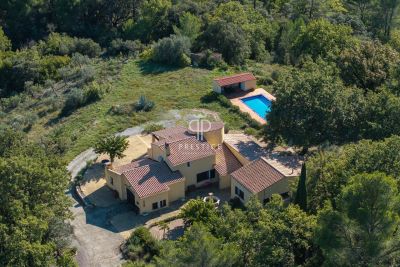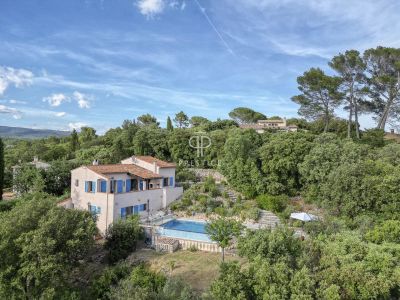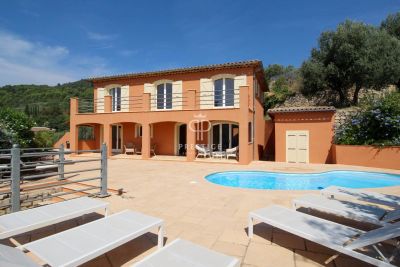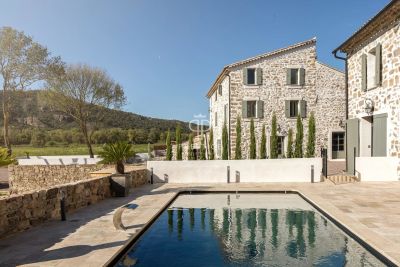Property Not Found
Unfortunately the property you are looking for may have been sold or removed from the market.
Similar Properties
We have found these properties in the same area that are similar.
Ref 248760
Located just 10 minutes walk from the charming village of Callas, this beautiful Provencal villa comes with a pool, tennis court, tranquility and beautiful panoramic views. The 4 bedroom property...
950,000 EUR
Ref 250944
A magnificent 4 bedroom property in the Var, perched high up in idyllic, peaceful countryside, set in over 7 acres of land. The main villa of 160m2 comprises an entrance hall with wc, a first s...
795,000 EUR
Ref 252038
Charming 2 bedroom house nestling in nearly 2 acres of glorious mature gardens with pool, while enjoying far reaching countryside views from its peaceful location near Flayosc. Offering splendid ...
545,000 EUR
Ref 250516
Bright and spacious 4 bedroom modern house set in nearly half an acre of gardens with pool, while enjoying far reaching countryside views from its location near the village of Callas. On two level...
695,000 EUR
Ref 249542
Nestling in 7 hectares of glorious land is this outstanding property with separate house, beautiful landscaped gardens and expansive pool, enjoying far reaching countryside views from its peaceful ...
1,690,000 EUR
Ref 248250
Located in a quiet setting on the heights of Draguignan, yet close to the city centre, this charming 3 bedroom house, with a living area of approximately 130m2, is set on a mature garden of 1,391m2...
575,000 EUR
Ref 251009
Rare opportunity to acquire a unique estate of beautifully renovated properties nestling in 23 hectares of glorious land with vineyards, orchards, gardens and pools, while enjoying far reaching cou...
6,900,000 EUR
Ref 249488
Situated in a quiet setting, yet just a few steps from Bargemon village, this charming 6 bedroom Provençal villa, with a living area of approximately 255m2, offers a clear views of the countryside...
890,000 EUR
Ref 250711
In excellent condition is this charming new 3 bedroom villa set in one acre of beautiful landscaped gardens with pool, while enjoying far reaching countryside views from its peaceful location near ...
845,000 EUR
Ref 251551
Very well presented, modern 5 bedroom single storey villa with garden, ideally located near all amenities in Draguignan. This stylish property comprises an entrance hall, and a large, bright livin...
550,000 EUR









